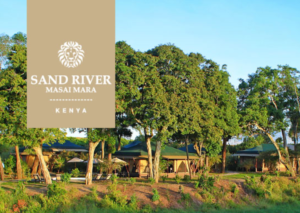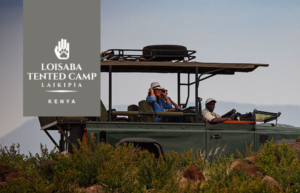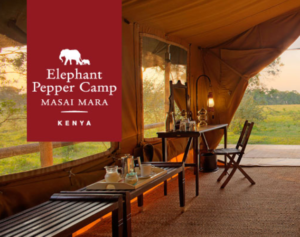How to Choose an Ecologically Responsible Safari Camp
April 12, 2018 - 4 minutes readWith increased choice for upmarket safari camps and lodges, how can visitors and travel industry professionals differentiate between the truly responsible camps and the fakers?
 Cheli & Peacock Safaris says that one of the best ways are the eco-ratings determined by Ecotourism Kenya (EK), an internationally recognized committee of environmental professionals that inspect and “eco-rate” camps and lodges based on their environmental, economic and social practices.
Cheli & Peacock Safaris says that one of the best ways are the eco-ratings determined by Ecotourism Kenya (EK), an internationally recognized committee of environmental professionals that inspect and “eco-rate” camps and lodges based on their environmental, economic and social practices.
EK places emphasis on protection of the environment, sustainable use of resources and support for local communities. Founded in 1996 as Africa’s first ecotourism society, they provide a credible, independent and professional assessment of a lodge or camp’s environmental caliber.
Their criterion of best practice includes:
- Protecting and investing in the environment
- Reducing and recycling waste
- Pollution prevention
- Promoting sustainable resources
- Investment in and empowerment of communities including local recruitment of staff
- Ethical workplace and business practices, including support for local trade
- Promotion and education of responsible tourism to local communities and staff
After stringent assessments and on-site inspections by officers from Ecotourism Kenya, establishments can be awarded by one of three levels of certification:
Bronze Eco-Rating
Demonstrates a property’s awareness and commitment to socioeconomic investment, responsible resource use and environmental conservation.
 Sand River Masai Mara has earned a Bronze Eco-Rating. Among their eco activities are pumping and heating water via solar power, and using low-wattage light bulbs throughout the property. The camp also uses biodegradable bathroom amenities in the guest rooms, waste is recycled or composted, and they have a tree-planting program whereby 1,200 trees have been planted with a 90% success survival rate.
Sand River Masai Mara has earned a Bronze Eco-Rating. Among their eco activities are pumping and heating water via solar power, and using low-wattage light bulbs throughout the property. The camp also uses biodegradable bathroom amenities in the guest rooms, waste is recycled or composted, and they have a tree-planting program whereby 1,200 trees have been planted with a 90% success survival rate.
Approximately 40% of the Sand River staff are from local communities and all casual work is allocated to local workers. On ad hoc basis, the camp supports Sekenani Primary School through provision of books and stationery with support from guest donations. The camp also organizes visits to Talek village at a cost of US$15 per guest, paid directly to the community.
Silver Eco-Rating
Shows a move towards excellence and is awarded to properties that have demonstrated innovation in achieving higher levels of socioeconomic investment, responsible resource use and environmental conservation.
Loisaba Tented Camp in north-central Kenya has achieved a Silver Eco-Rating. Powered by solar and power-inverter batteries, each guest tent features a solar water-heating system. Guests are encouraged to participate in low-impact activities  like guided nature walks, bird-watching, cycling and village visits. All profits generated by tourism activities at Loisaba are dedicated to conservation of the 56,000-acre private wilderness area, as well as supporting community orientated health, education and enterprise programs with the neighboring Samburu and Laikipia Masai tribes.
like guided nature walks, bird-watching, cycling and village visits. All profits generated by tourism activities at Loisaba are dedicated to conservation of the 56,000-acre private wilderness area, as well as supporting community orientated health, education and enterprise programs with the neighboring Samburu and Laikipia Masai tribes.
Gold Eco-Rating
Indicates that a property has achieved outstanding levels of excellence in socio-economic investment, responsible resource use and environmental conservation.
Elephant Pepper Camp in Masai Mara is one of only six camps in all of Kenya to earn a Gold Eco Rating. The camp achieves environmental best practice by combining old  fashioned safari camp know-how with the latest technology, leaving a minimal footprint. Built entirely with removable tent structures, the camp relies on solar power and uses only LED lighting.
fashioned safari camp know-how with the latest technology, leaving a minimal footprint. Built entirely with removable tent structures, the camp relies on solar power and uses only LED lighting.
Rubbish is responsibly disposed of or recycled. All funds raised from recycling glass are donated to the East African Women’s League to support a family planning program managed by the North Lake Branch in Naivasha. Since 2009, Elephant Pepper Camp has contributed over US$415,000 in lease payments and bed-night fees directly to Maasai landowners.
0 Comments